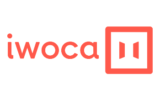Find the Best Business Loans of 2023
A Guide for Small Businesses
Welcome to our comprehensive guide on finding the best business loans for small businesses in 2023!
As an entrepreneur, securing the right funding is crucial for the growth and success of your business. With the ever-changing landscape of financial institutions and lending options, navigating the myriad of choices available can be overwhelming.
See our selection of business finance options below for unsecured working capital and business growth funding. Alternatively, you can contact us via our business loan quote enquiry form or on 0117 980 7743 (9am to 5.30pm Monday to Friday).
Applying won’t affect your credit score
Cashflow Solutions provide a fasttrack business finance service
Clifton Private Finance are an independent broker
We will explore traditional banks, online lenders, government-backed loans, and alternative financing solutions, shedding light on their benefits, requirements, and potential drawbacks.
Whether you want to expand your operations, purchase equipment, hire new talent, or simply need some working capital, we’ve got you covered.
Prepare to make informed decisions about your business’s financial future and find the perfect loan that aligns with your unique needs.
Short Summary
- Explore loan options from major banks, smaller lenders and specialist companies to find the best business loan for your needs.
- Consider key factors such as interest rates & fees, terms & conditions and eligibility criteria when choosing a business loan.
- Government support and alternative financing can give businesses an alternative to traditional loans for success in 2023.
Get a Business Loan Quote!
Top Business Loans for 2023
The world of business loans is vast and diverse, offering various options such as secured loans, unsecured loans, bridging loans, and commercial mortgages.
Each type of loan has its unique features and advantages, catering to different business needs. To ensure you select the optimal business loan, it is crucial to consider factors such as the loan’s flexibility, customer service, and borrowing amount.
Major high-street banks, smaller lenders, and specialist companies offer a wide range of business loans in the UK.
To help you navigate this landscape comparing business loans, we will dive into quick funding solutions, flexible repayment options, and innovative lending platforms.
Quick Funding Solutions
Time is of the essence when it comes to addressing the financial needs of a business. Quick Funding Solutions provide short-term financing options that grant businesses rapid access to capital.
These solutions encompass merchant cash advances, start-up loans, and alternative financing options. Small businesses can explore loan options from providers such as Bank of Ireland, Metro Bank, Yorkshire Bank, British Business Bank, Natwest Small Business Loan, and Capital on Tap.
Securing the right quick funding solution can be the difference between seizing an opportunity or missing out on growth potential. As a small business owner, you must familiarize yourself with various quick funding solutions and evaluate their suitability for your unique needs.
Flexible Repayment Options
Repayment flexibility can greatly impact the convenience and affordability of a business loan.
Some business loan providers offer fixed-rate options, allowing businesses to plan their loan repayments with certainty.
However, many business loans come with variable rates, which can lead to fluctuations in the rate and associated repayments. It’s important to be aware of early repayment penalties imposed by some lenders, such as Metro Bank, while others like IWOCA do not charge fees for early repayment.
The NatWest small business loan offers flexible repayment options, a high maximum loan amount, and no early repayment fees or penalties. When choosing a business loan, consider the repayment flexibility different lenders offer.
A loan with flexible repayment options can provide significant benefits, such as reduced financial stress and the ability to manage cash flow more effectively. Choose a loan that aligns with your business’s financial circumstances and future growth plans.
Innovative Lending Platforms
Innovative lending platforms have emerged as viable alternatives to traditional financial institutions, providing businesses with more diverse financing options. Platforms like Funding Circle, Capital on Tap, and HSBC facilitate loans between investors and small businesses, thereby expanding the funding landscape. Funding Circle, for instance, has arranged loans exceeding £13 billion to small and medium-sized businesses, with loan periods of up to 60 months and a maximum loan amount of £1M.
Exploring innovative lending platforms can give your business access to an expanded pool of funding options, often with more flexible terms and conditions. Embrace the changing financial landscape by considering alternative lending platforms when seeking a business loan.
Types of Business Loan
In the UK, there are various types of finance options available to business owners.
Here’s a summary of the different types of finance that UK businesses can consider:
-
Bank Loans
Traditional secured and unsecured business loans from high street banks.
- Typically require a solid credit history and collateral.
- Fixed rates of interest and regular repayment schedules.
-
Business Grants
Non-repayable funds are provided by the government, organizations, or charities.
- Available for specific purposes, such as research and development, innovation, or job creation.
- Eligibility criteria and application process vary.
-
Venture Capital
Investment is provided by venture capital firms in exchange for equity or shares in the business.
- Often suitable for high-growth startups with high potential for returns.
- Investors may provide expertise and guidance along with capital.
-
Angel Investment
Funding from wealthy individuals (angels) investing their money in early-stage businesses.
- Angels may offer mentorship and industry connections in addition to financial support.
- Investment terms and involvement vary based on individual angels.
-
Crowdfunding
Online platforms allow businesses to raise funds from a large pool of individuals.
- Can be reward-based (offering products or services in return) or equity-based (offering shares in the business).
- Requires creating an engaging campaign and attracting a supportive community.
-
Invoice Financing
Provides immediate cash flow by selling outstanding invoices to a finance company.
- Options include invoice factoring (outsourcing credit control) or invoice discounting (business retains control).
- Useful for businesses with long payment terms or late-paying customers.
-
Peer-to-Peer Lending
Borrowing directly from individuals or groups through online platforms.
- Rates and terms depend on creditworthiness and risk assessment.
- Can be a faster alternative to traditional bank loans.
-
Business Bridging Loans
Typically loans between 1 and 12 months of business bridging loans provide short-term finance to cover a short term gap in funding. Use our bridging loan service to find the most cost-effective deals in the market.
-
Government Backed Loans
- Examples include the Enterprise Finance Guarantee and the Start Up Loans Program.
-
- Offers increased access to finance, especially for small businesses.
- Schemes like the British Business Bank provide guarantees or financial support to lenders.
Get a Business Loan Quote!
Factors to Consider When Choosing a Business Loan
Before diving into the world of business loans, it is crucial to understand the key factors that can influence your decision.
These factors include interest rates and fees, loan terms and conditions, and eligibility criteria.
In the following sections, we will delve into each, providing you with the knowledge to make an informed decision when choosing to get a business loan.
Interest Rates and Fees
The cost of a business loan can be significantly influenced by the rate of interest and associated fees. Factors such as your business’s circumstances, the lender’s current rate guidelines, and whether the loan is secured or an unsecured loan can all affect the interest rate of a business loan. It is also important to be aware of any additional fees that may be incurred when arranging the loan, as these can often be negotiated.
Understanding the various factors that contribute to the cost of a business loan is essential when comparing different loan options.
A lower rate of interest may lead to significant savings over the life of the loan, while hidden fees can quickly add up. By closely examining the costs of different business loans, you can choose the most cost-effective option for your business.
Loan Terms and Conditions
The terms and conditions of a business loan can have a significant impact on your overall experience and the cost of the loan. It is essential to understand the specific details of the loan agreement, such as the loan amount, repayment period, interest rate, fees, and any other special conditions that may apply.
For example, some lenders may offer business finance with a fixed interest rate, allowing businesses to plan their loan repayments with certainty. However, many business loans come with variable rates, which can lead to fluctuations in the rate and associated repayments.
Carefully review the loan terms and conditions of each business loan you consider to ensure you fully understand the implications and obligations associated with the loan. There may be a requirement for a personal guarantee, which means the lender can come ultimately after your personal assets if you cannot repay the loan.
By familiarizing yourself with the nuances of different loan terms and conditions, you can make an informed decision that best suits your business’s needs and financial circumstances.
Eligibility Criteria
Meeting the eligibility criteria for a business loan is often a critical factor in securing the funding your business needs. Lenders will establish their own criteria for loan eligibility, including factors such as the type of business, your credit rating and history, and the presence of valuable business assets. Credit checks are typically mandatory for any type of business loan, and your business’s credit record can have a significant impact on your ability to secure a loan.
By understanding the eligibility criteria for different business loans, you can focus your efforts on securing a loan that aligns with your business’s unique circumstances. Do your research, assess your business’s own credit score and history, and explore the various loan options available to find the one that best meets your needs and eligibility.
How to Apply for a Business Loan
Applying for a business loan may seem intimidating, but by breaking the process down into manageable steps, you can increase your chances of success.
In the following sections, we will explore the steps to follow when applying for a business loan, including preparing a business plan, gathering financial documents, and submitting an application.
Preparing Your Business Plan
A well-prepared business plan is the cornerstone of any successful business loan application. A comprehensive business plan should include an executive summary, company description, market analysis, competitive analysis, product/service description, operations plan, management team, financial plan, and an appendix.
The importance of a business plan cannot be overstated, as it serves as a guide for your business, assists in obtaining financing, and acts as a metric for evaluating success.
When constructing your business plan, be realistic, succinct, and include all pertinent information. Analyze your market and competition, and tailor the plan to your business’s specific requirements.
A well-prepared business plan can significantly improve your chances of securing the funding your business needs to thrive.
Gathering Financial Documents
In addition to a solid business plan, gathering the necessary financial documents is a crucial step in the business loan application process.
The documents required may vary depending on the lender and the type of loan, but common documents include a credit report, personal and business bank account statements, personal and business tax returns, balance sheet, income statements, cash flow statements, and business plans.
Furthermore, lenders may require evidence of business formation, business licenses and registration, and legal documents.
To ensure a smooth application process, organize your financial documents in a way that is easily comprehensible and logically sequenced. Clearly label each document and arrange them in chronological order.
Providing a well-organized and complete set of financial documents can significantly improve your chances of securing a business loan.
Submitting Your Application
Once you have prepared your business plan and gathered the necessary financial documents, it’s time to submit your business loan application.
The application form will typically require details regarding the amount to be borrowed, the purpose of the loan, the business plan, business current account statements, and, if applicable, the balance sheet and associated profit/loss information.
Pay close attention to detail when filling out the application form, as any minor error could result in your application being declined. Working with a specialist business finance broker can ensure your application is submitted to the right lender with the right information.
Get a Business Loan Quote!
Government Support and Alternative Financing Options
Sometimes, traditional business loans may not be the best fit for your business’s needs.
Fortunately, there are government support and alternative financing options available to help businesses access the funding they require.
In the following sections, we will discuss government-backed loans, grants and incentives, and alternative financing options.
Government-Backed Loans
The UK government offers several loan, grant, and guarantee schemes to support small businesses, such as the Start Up Loans Initiative, the Recovery Loan Scheme, and the Greater London Investment Fund.
These government-backed loans can range from £10,000 to £5 million, providing businesses with much-needed financial support. The interest rate for a Government-backed Start Up Loan in the UK is fixed at 6% over a term ranging from one to five years.
Exploring government-backed loans can provide your business with access to funding that may be more flexible and affordable than traditional business loans.
Grants and Incentives
Grants and incentives can provide businesses with financial support without needing repayment. Both the government and private organizations offer a variety of grants and incentives that can be used for various purposes, such as launching a start-up, job creation, economic stimulation, and funding sustainable activities and projects.
To qualify for grants and incentives, businesses must meet certain criteria, which can vary depending on the type of grant or incentive being sought.
To take advantage of grants and incentives, research the various options available and assess their suitability for your business’s needs. Applying for grants and incentives can be a time-consuming process, but the potential financial benefits can greatly contribute to your business’s growth and success.
Alternative Financing Options
When traditional business loans and government-backed loans aren’t the right fit for your business, alternative financing options can provide much-needed funding.
These options include asset finance, equity crowdfunding, invoice financing, merchant cash advances, online platforms, peer-to-peer lending, property finance, term loans, grants, fintech, venture capital, non-bank fintech lenders, alternative investment funds, buy now pay later, self-directed IRAs, securities-based loans, purchase order financing, bridge loans, and crowdfunding.
By exploring alternative financing options, you can find a funding solution tailored to your business’s unique needs and circumstances.
Business Loan Success Stories
There is no better way to understand the power of business loans than by examining the success stories of businesses that have leveraged them to overcome financial challenges, expand and grow, and innovate and adapt.
Overcoming Financial Challenges
Businesses encounter various financial challenges, such as cash flow issues, lack of capital, and difficulty obtaining traditional financing. A couple who sought the assistance of a financial adviser to explore alternative financing options serves as a prime example of a business successfully utilizing a business loan to overcome financial challenges. By securing the right loan, they could address their cash flow problems and ensure the continued success of their business.
Understanding the financial challenges your business may face and leveraging business loans to address these issues can significantly impact your business’s long-term success. Whether resolving cash flow problems or acquiring additional capital for growth, the right business loan can be the key to overcoming financial obstacles and securing a prosperous future.
Expanding and Growing
Businesses that have utilized business loans to expand and grow their operations are inspiring examples of the transformative power of well-tailored loans. Amazon, for instance, has increased its small business loan activities through a partnership with Goldman Sachs, providing crucial funding to businesses looking to scale and prosper.
By utilizing business loans to finance new equipment, personnel, or market penetration, businesses can unlock growth potential and achieve their long-term goals. The right loan can catalyse expansion and growth, positioning your business for continued success in an ever-changing market.
Innovating and Adapting
In a constantly evolving market, businesses must innovate and adapt to remain competitive. Business loans have been instrumental in helping businesses navigate financial hardships, such as the COVID-19 pandemic, and invest in innovative products and services to meet changing market demands. High-growth firms have utilized loan schemes such as the Future Fund to invest in green innovation, while SMEs have received support through the Coronavirus Business Interruption Loan Scheme (CBILS) to experiment with new products and diversify their production and distribution methods.
Innovating and adapting with business loans can help businesses remain competitive, augment their profits, and mitigate their risk of failure. By leveraging business loans to invest in new products, services, and markets, your business can stay ahead of the curve and thrive in an ever-changing market landscape.
Summary
In conclusion, the right business loan can catalyse your business’s growth, success, and innovation. By understanding the different types of business loans, considering key factors such as interest rates, loan terms, and eligibility criteria, and exploring government support and alternative financing options, you can secure the funding your business needs to thrive.
Frequently Asked Questions
What is the current interest rate for business loans UK?
The current interest rate for business loans in the UK ranges from around 3% to 10%, depending on the type of loan and collateral being provided.
For unsecured loans, the average interest rate is 5.8%, while commercial mortgages have an interest rate between 6% and 8%.









